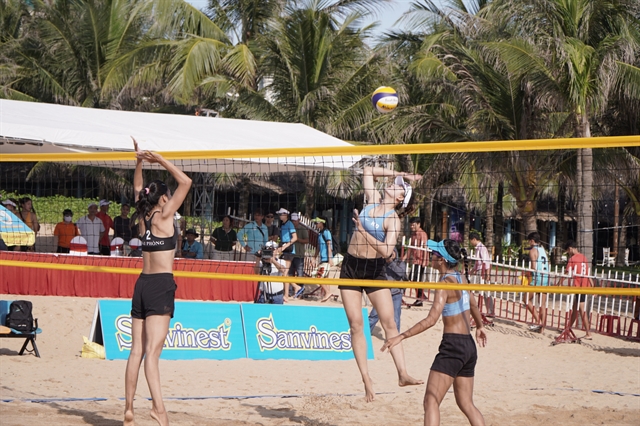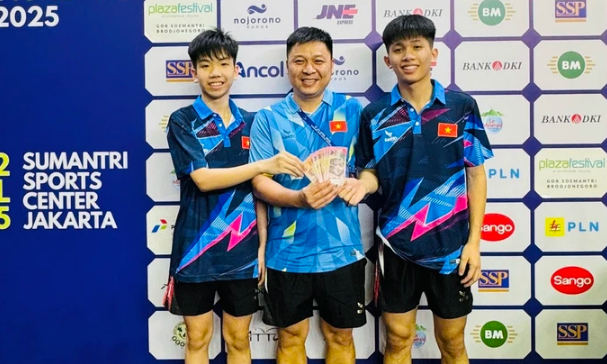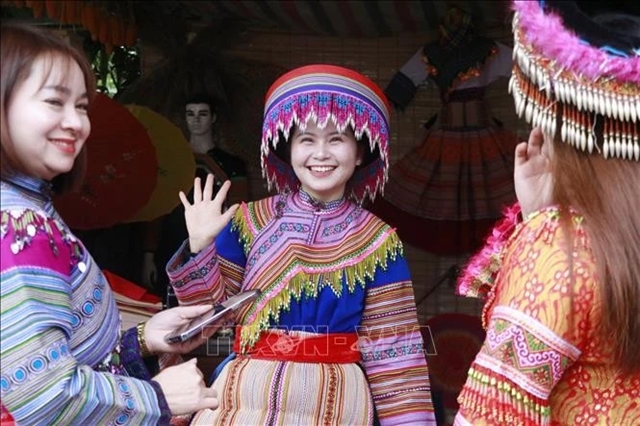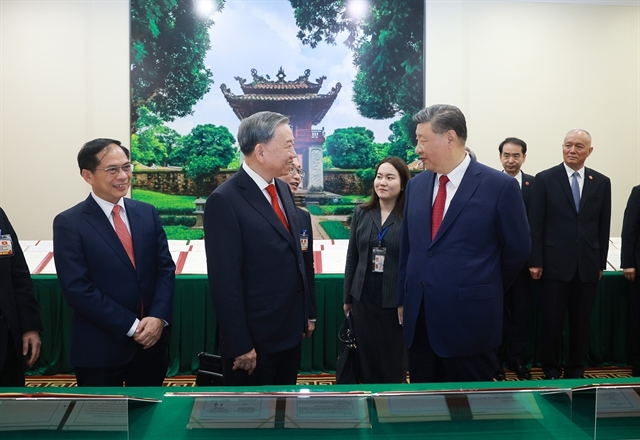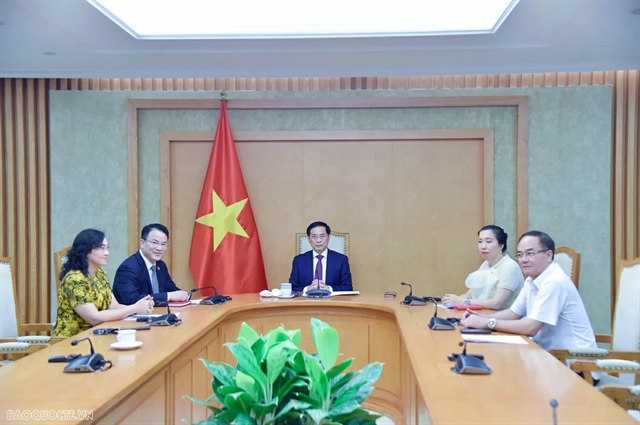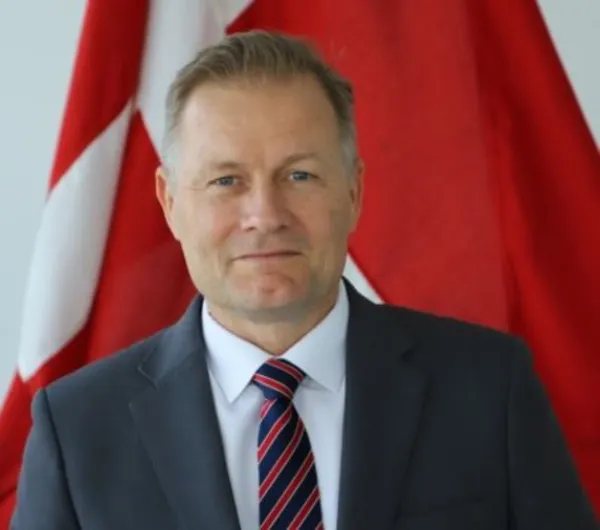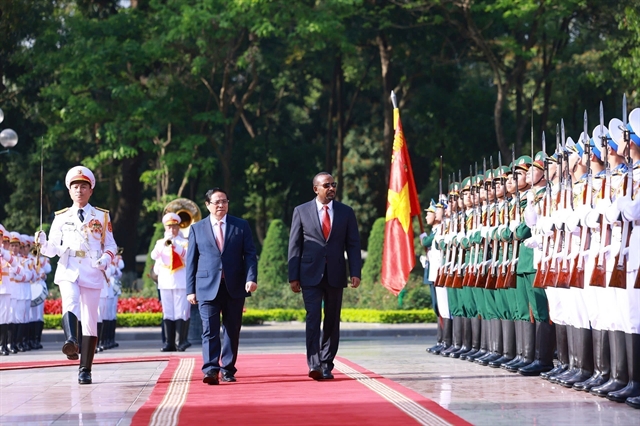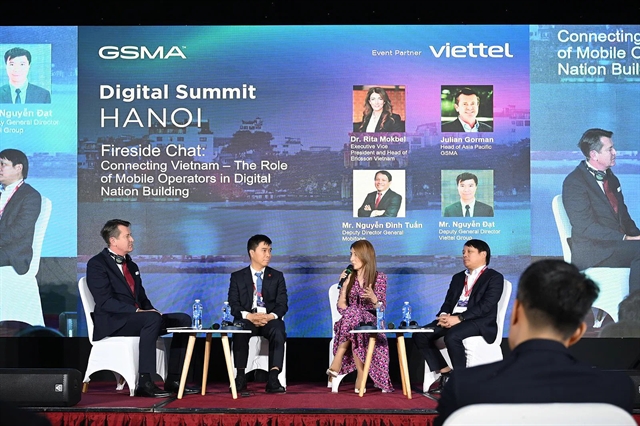 Politics & Law
Politics & Law
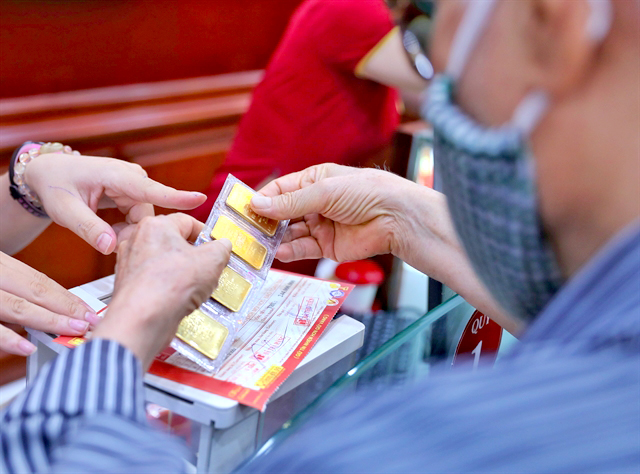
Deputy Prime Minister and Foreign Minister Phạm Bình Minh affirmed to Indian President Pranab Mukherjee at a meeting in New Delhi on Tuesday that Việt Nam wants to step up the comprehensive strategic partnership with India.
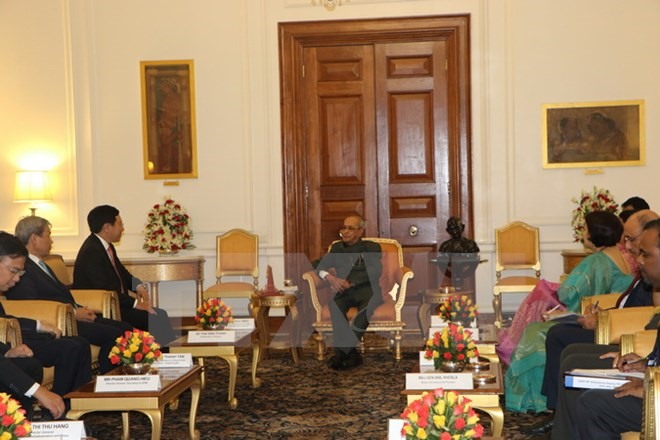 |
| Deputy Prime Minister and Foreign Minister Phạm Bình Minh meets Indian President Pranab Mukherjee at a meeting in New Delhi on Tuesday. — VNA/VNS Photo Huy Bình |
NEW DELHI — Deputy Prime Minister and Foreign Minister Phạm Bình Minh affirmed to Indian President Pranab Mukherjee at a meeting in New Delhi on Tuesday that Việt Nam wants to step up the comprehensive strategic partnership with India.
Minh, who is on an official visit to India, said the two countries should increase multilateral co-operation, consultation and co-ordination in addressing international issues of mutual concern to better respond to changes in international and regional situations.
The Deputy PM congratulated India on its accomplishments in economics, science and technology and expressed his belief that India will soon become one of the biggest economies in the world.
President Pranab Mukherjee expressed his satisfaction at the development in the friendship between Việt Nam and India.
He said establishing the bilateral comprehensive strategic partnership in 2016 opened up a new chapter in the two countries’ co-operation and deepened relations.
The President pledged to support bilateral solidarity and friendship in any position.
The same day, Minh met with India’s Minister of Defence and Minister of Finance Arun Jaitley.
The two sides agreed to maintain co-operation in security-defence, especially training and exchanges at relevant forums.
Jaitley said India will continue providing Việt Nam with preferential credit packages to help the country realise its ambition of modernisation and industrialisation.
Minh said the two nations have numerous investment co-operation opportunities, so the governments should create the best conditions for businesses to expand win-win partnerships.
Also on Tuesday, Deputy PM Minh delivered a speech at the opening session of the ninth Delhi Dialogue.
The Deputy PM said the Asian-Pacific region is witnessing a strong shift in geopolitics and geo-economy toward the formation of a multi-polar order.
The Association of Southeast Asian Nations (ASEAN) and India share major political and socio-economic interests in Asia-Pacific, he said, proposing the two sides play a greater role in maintaining regional peace, stability and development.
ASEAN and India will create a dynamic economic development space based on their close infrastructure, digital and navigation connectivity, as well as trade links, investment ties and people-to-people exchanges, he said.
Both sides will work to build an open and balanced regional architecture based on the rule of law, Minh said, adding that ASEAN-India bilateral co-operation will be important driver in the success story of the “Asia-Pacific Century”.
As the co-ordinator for ASEAN-India relations in 2015-2018, Việt Nam vows to work with countries to realise the vision of the bilateral strategic partnership, and connect the implementation of the ASEAN Vision 2025 with the Act East Policy of India, focusing on three pillars: politics-security, economy and culture-society.
In terms of politics-security, ASEAN supports India to play a bigger role as a leading power in Asia-Pacific and beyond, and hopes to enhance co-ordination with the country to deal with emerging challenges and to build a rule-based regional architecture.
The bloc also welcomes India’s efforts to maintain regional peace, stability and development.
In economic terms, ASEAN and India share important interests in promoting liberalisation of trade and investment.
Unprecedented opportunities await ASEAN and Indian investors and consumers when the two sides establish a 1.8 billion-strong market with total gross domestic product of US$4 trillion, Minh noted.
Indian businesses could access a united ASEAN market with a population of nearly 650 million, connected with regional leading economies via free trade agreements, he said.
Minh called on ASEAN and India to optimise their potential to create regional value chains and become a driving force for regional economic integration, while actively involving in the overall plan for ASEAN connectivity and implementing highway and seaport projects and soon completing agreements on marine transport and aviation.
He also suggested increasing ASEAN-India co-operation in education, tourism, culture and people-to-people exchanges, especially among youngsters, on the basis of their historical and cultural links. — VNS


